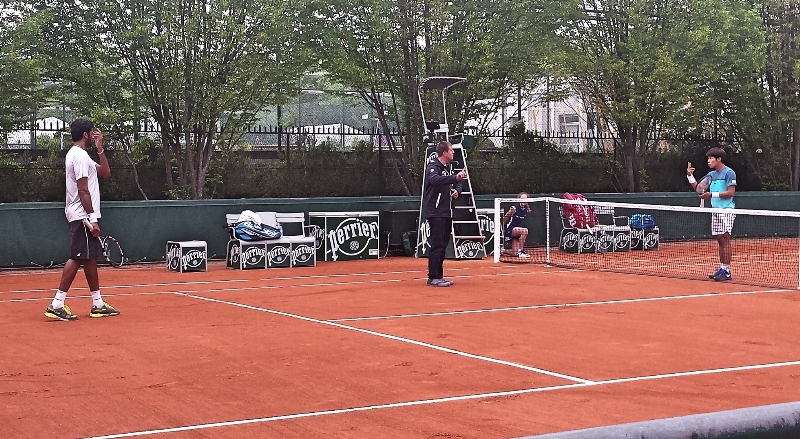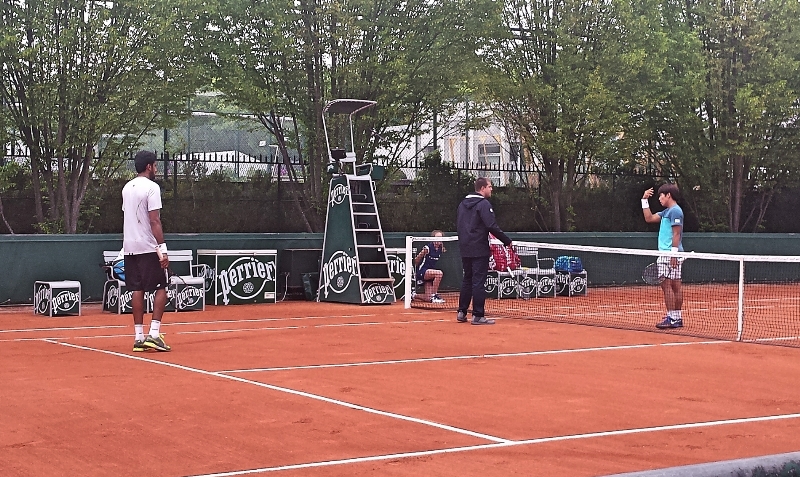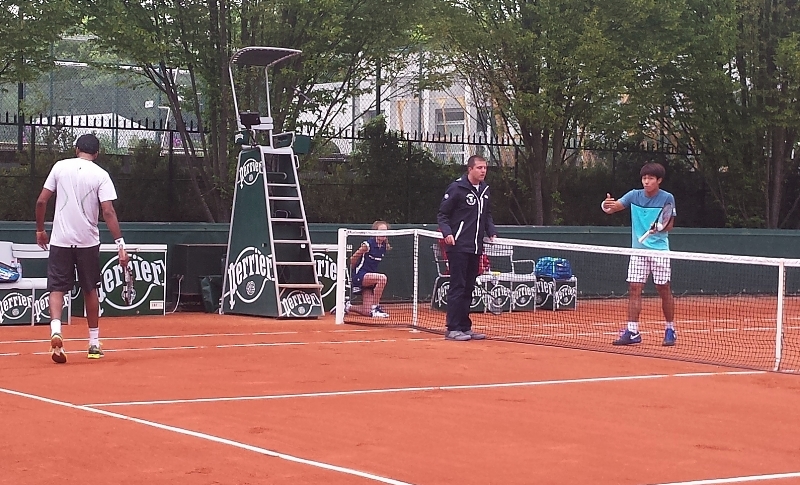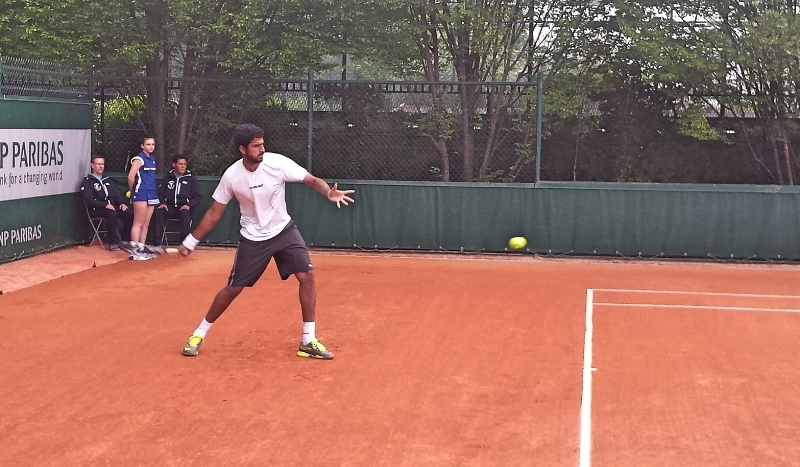Qualifying in the Majors often showcases young talents, surprise names, and a ton of quality matches that go unnoticed for the most part. In the first day of qualifying at the French Open, there was one match that featured little bit of all those things, and more. South Korean player Duckhee Lee (that is how ATP website spells his name, but also known as Lee Duck-Hee or Duck Hee Lee) played on Court 18, the furthest outside court, against the ex-NCAA player from the University of Alabama (2006-10), Saketh Myneni of India (ranked 125 in the ATP and seeded 28 in the qualifying draw).
Background information for those who may not know: Lee is a 17-year-old ATP player, currently ranked 225, who has been deaf from birth! He does not hear when the crowd claps, when the referee calls the score, or when the line judges call the ball out.
Lee won the first 6-1, remaining error-free for the most part, while Myneni, serving at 50% first serves (no aces), was unable to dictate play and racked up the errors (do not trust the Roland Garros official match stats that shows one unforced error for Myneni – it also shows no net points won for either player for the duration of the match). In the second set, Myneni found his powerful serve and started holding, sinking his teeth into the match.
The American referee was having a bad day. At one point, he even called the wrong score and tried to argue that the players had it wrong for a while before realizing his error. Then, with Lee serving at 3-4 down, the referee truly “pooped”! There is no other way to say it.
On a deuce point in that game, Lee hit a shot during a rally that seemed to catch the back of the line. Myneni, unsure, stood still for half a second trying to see the mark in order to quickly decide if he should stop the point or not. He could not find it, thus he continued play. About four shots later, the referee – whose name escapes me at this moment – stopped the point himself, and went to check the mark. Both players were confused as to why the referee came down from his chair in the middle of the point. The referee walked to the baseline on Myneni’s side and wanted to confirm with the Indian player that he stopped play (remember, this is after Myneni went on to play the point, and hit another couple of shots). Myneni quickly pointed out that he did no such thing because he was not sure. The referee probably realized his mistake at this point – that he is the reason why a legitimate point is interrupted in the middle. However, he still went ahead and showed a mark that was out (I personally don’t believe it was the right mark). He turned toward Lee and pointed with his finger the “out” sign. Lee was rightfully flabbergasted, because nobody stopped play, nor asked him to check a mark in the middle of the point. Lee usually lip-reads and has an interpreter to help him communicate. However, the way he gesticulated and argued his case through facial expressions to the referee was just as efficient as anyone else who could speak.
First he tried to tell the referee, I believe, that two shots were already hit after that questionable ball, and that it was too late to stop the play.

He argued correctly that his opponent neither stopped playing, nor challenged the call, which means that the referee had no reason to interrupt play, especially few shots later.

By this time, the referee was also using his gestures, trying to appease the 17-year-old. Lee would not let it go, describing one-by-one each forehand and backhand hit, well after the “contested” shot that nobody on the court actually contested.

Lee was right. Unfortunately, having shown a mark that was out, the referee could not have the point replayed even though Lee made a case for playing the point over (thus, the “2 serves” sign with the hand). Myneni did not look comfortable at all with the decision either, but he knew replaying the point was not an option at this point. Lee, somehow gathered himself, found a way to save the break point, and held serve to equalize at 4-4. It would have been a tough pill to swallow had that point caused the crucial break to come on the eighth game of the set. It was almost a relief that the set was not decided on a terrible judgement call made by the referee.
It was nonetheless remarkable to see how well Lee made his argument despite his hearing impairment and limited speech. There have been several articles written about how Lee has been able to overcome barriers to become one of the best juniors in the world, and none other than Rafael Nadal hailed him as “inspirational” back in 2013. Lee may not hear but he is making himself heard in the world of tennis through his successful rise, and as in today’s case, even during an argument with an umpire. Others who know him directly have already told me wonderful things about the youngster’s character and determination. His Roland Garros adventure came to an end after losing the third set 6-4, but I have no doubt his fan club is growing by the week.


